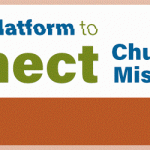Last week, I shared some great progress being made by those focusing on unreached peoples. It’s encouraging news. In fact, it’s so encouraging that the Director of Research for one of the largest missionary-sending agencies in the world (the Southern Baptist International Mission Board or IMB) concluded in his summary statement that he’s “seen more progress in fulfilling the Great Commission in the past 5 years than throughout his entire 30-year career as a researcher and missionary.”
I trust this is as exciting for you to hear as it was for me. The bottom line on his numbers: His research is showing 3142 remaining unengaged, unreached people groups (UUPG’s) of all sizes. (This number differs from Finishing the Task’s (FTT) current number because FTT is currently looking only at groups greater than 25,000 in population.) The IMB, for their part, is asking their regional leaders (referred to as Affinity Group Leaders) to submit a plan or explanation of literally each of the UUPG’s in their region. This plan could propose any number ways to handle each individual group, but it must address each group intentionally. Some groups might be dismissed (either because, in the opinion of the regional leader, they don’t exist or they’ve now been engaged or they’re no longer “unreached” — meaning that enough have been evangelized). But for the groups that remain, the Affinity Group Leader must either write a plan for the IMB to embrace and launch a plan to evangelize the group — or they must hook up with another Great Commission agency (another mission agency or church) to do so.
I like this approach for several reasons. First, it’s intentional. Second it’s strategic. Third, by doing so, the IMB is indicating all the more its profound commitment to interact and integrate with other “Great Commission Christians.” This posture seemed to become even more profound following Avery Willis’ now-famous address at the Global Consultation on World Evangelism in 1995. By the grace of God, it happened that I chose to attend Avery’s session. Without knowing what I was about to hear, I wandered in, seated myself, and began to listen to this great man of God as he was, at first, repenting for his previous sin of excluding others from data-sharing and assuming that Southern Baptists had to “go it alone” in completing the Great Commission. That one talk seemed to do more to bring evangelical unity (at least as it relates to the Southern Baptists) than any other talk in the last century.
So this Christmas, I’m praising God not only for unity, but also for the progress that it is observing. I’m thankful to be on the side of the guys who are definitely destined to win the battle for right and not-so-right. Because, you see, I’ve read the last chapter of the book, and the guys covered with the blood of Jesus win all the battles — because Jesus wins all the battles for them. God be praised or unity and progress!
Merry Christmas!
Doug












Surely prayer holds a significant role in reaching these UUPGs.
Might Facebook not be an amazing tool in creating networks that would collaborate in behalf of these UUPGs?
If you know how to use Facebook, and if you want to create a Fan Page in behalf of one of these UUPGs to promote prayer for them (which I would hope would sooner-than-later lead to collaborative efforts to engage them), we hope to soon be ready to share a Facebook App with you so that you can coordinate prayer (even 24×7 prayer efforts).
http://www.facebook.com/Pray4Tunisia/app_283467661763935
It’s not perfect, but we’re eager to improve it.
Maranatha, Lord! And help us preach your Gospel to the ends of the earth so that then the end can come.
Pray4Tunisia